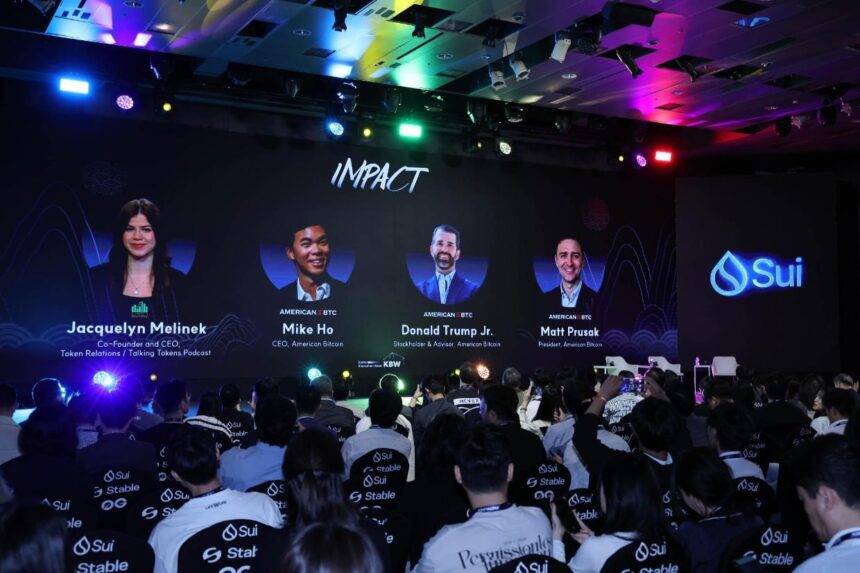This year’s Korea Blockchain Week (KBW), the largest annual crypto event in the country, prominently featured the influence of U.S. personalities, particularly members of the Trump family and their associated cryptocurrency initiatives. The event took place at the Grand Walkerhill Seoul, attracting considerable attention within the local crypto industry.
Among the notable speakers were Donald Trump Jr., the eldest son of former U.S. President Donald Trump and co-founder of American Bitcoin, alongside his brother Eric Trump, co-founder of World Liberty Financial. Both brothers, along with executives from their companies, were present to discuss their ventures and engage with the Korean market. Additionally, officials from the White House’s presidential council on digital assets showcased the administration’s backing for cryptocurrency initiatives.
Eric Trump initiated the event with a virtual congratulatory message, expressing admiration for the Korean people’s enthusiasm for cryptocurrency. He commended Korea for quickly establishing a legal and institutional framework for crypto, suggesting that the nation is on a path to becoming a leader in the blockchain industry in Asia. His remarks echoed sentiments he expressed during his previous appearance at the Upbit D Conference, highlighting the strong interest in crypto within Korea.
Donald Trump Jr. also joined the conversation virtually, affirming the potential of the Korean market in the global crypto landscape. Industry experts note that Korea’s financial liquidity and technological advancements create an appealing environment for international crypto ventures. Mike Ho, executive chairman of American Bitcoin, emphasized the supportive regulatory environment under the new administration, suggesting that the future of cryptocurrency in South Korea looks promising.
Zak Folkman, co-founder of World Liberty Financial, expressed ambitions to collaborate with leading stablecoin projects in Korea and hinted at upcoming partnerships poised for announcement. The Trump family’s influence, though not physically present, was felt throughout the event, as many attendees linked their support for crypto to the increased regulatory clarity that has fostered growth in the sector.
Patrick Witt, executive director of the president’s council of advisors for digital assets, underscored the current opportunity for crypto to flourish in the United States, emphasizing the importance of nurturing the industry without regression.
As discussions evolve, some industry insiders are advocating for innovative approaches to position Korea strategically amidst global trends. Earlier this year, Korea began endorsing institutional crypto investments, and the exploration of a Korean won-pegged stablecoin is intensifying, with multiple bills currently pending in the National Assembly.
However, leaders like Simon Seojoon Kim, CEO of blockchain venture capital firm Hashed, suggest that more must be done to leverage Korea’s burgeoning cultural influence, particularly among its K-pop fandom. Kim proposed a “K-digital citizenship” program that uses blockchain to create a comprehensive platform similar to the UAE’s TAMM, integrating various government services to foster a supportive ecosystem for both locals and the growing number of foreign residents.
He stressed that as global communities form around shared cultural values, leveraging blockchain technology to enable these connections is not only advantageous but essential for future growth.







